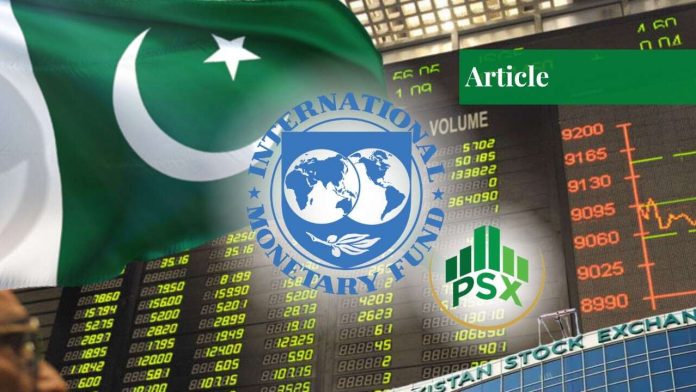Pakistan, oh land of diverse beauty,
Your lush green valleys and towering peaks,
Your warm and welcoming people,
All make this land a paradise to seek.
But challenges, they do come,
And the IMF, it did call,
For Pakistan to reform,
And to stand up once and for all.
The path has been tough,
But the people, they are strong,
With resilience and determination,
They battle the odds all day long.
The reforms, they bring change,
And for brighter tomorrows they pave,
As Pakistan strives to avert default,
With its economic manoeuvring, cheeky and brave.
So let us all come together,
To support this great land,
As Pakistan hopes to rise again,
With the IMF lending a helping hand.
Now, to understand the situation at hand;
Over the past few years, Pakistan and the International Monetary Fund (IMF) have established a deepening and evolving relationship, with the country seeking IMF assistance to tackle its persistent economic challenges. The most recent engagement between the two entities has taken place in 2023, with Pakistan once again reaching out to the IMF for support in stabilizing its economy. This write up will explore the reasons behind this move, the nature of the IMF-Pakistan relationship in 2023, and the implications it bears for the country’s economic future.
To begin with, it is important to note that Pakistan’s economy has been facing significant challenges for some time, particularly in the aftermath of the COVID-19 pandemic. A combination of factors, including a large fiscal deficit, a volatile currency, and an unsustainable current account balance, have led to high inflation, declining reserves, and a growth slowdown. With the government struggling to find viable solutions to these issues, it has become increasingly apparent that external assistance may be necessary.
In light of this, Pakistan reached out to the IMF in 2023, seeking access to financing under the Extended Fund Facility (EFF). The program, which is designed to support countries with macroeconomic imbalances, will provide Pakistan with a loan of around $6 billion over a period of 39 months. The IMF’s decision to approve the loan follows a review of Pakistan’s economic performance, with the country committed to implementing a series of structural reforms aimed at enhancing fiscal and monetary discipline, promoting growth, and reducing poverty.
The nature of the IMF-Pakistan relationship in 2023 reflects a deeper level of engagement and collaboration than in previous years. Unlike previous IMF programs, which were often accompanied by strict conditionalities and limited policy flexibility, the EFF is designed to be more flexible and tailored to each country’s unique situation. In this sense, Pakistan has been able to negotiate a program that takes into account its specific needs and priorities, while also ensuring that the IMF’s expectations are met.
Moreover, the IMF has been working closely with Pakistani policymakers to help them implement the necessary reforms and build capacity in key areas such as revenue mobilization, public financial management, and the energy sector. This level of interaction and engagement has not only helped to build trust between the two entities but also facilitated a more constructive dialogue on how best to address Pakistan’s economic challenges.
Henceforth, the direction of the IMF-Pakistan relationship in 2023 is significant for the country going forward.









